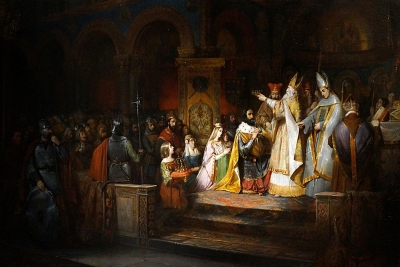
Throughout history, kings have often been supposed to enjoy a special relationship with the gods of their people, and in many cases, have been regarded as gods themselves.
In ancient Egypt, the king or pharaoh was believed to be divine and the Hittite kings were modified after their deaths. The Minoan kings of Crete were identified with the bull headed sun god. In many primitive tribes in Asia and Africa, the king was identified with the scared and divine animal of his tribe. The Swedes and Prussians of pagan Europe had Aztecs in Mexico and the Incas in Peru were, if not gods themselves, considered to be direct descendants.
Alexander the Great (356-323 B.C), who had himself declared a god in the last year of his life, was followed by a number of god kings throughout the Near East. In the Roman Empire the practice of making the emperor a god originated when Julius Caesar was pronounced divus Julius after his death. The Byzantine emperors were venerated as God’s representative of earth.
The Japanese emperor was thought of as supernatural in some degree, but their term “kami” usually translated as “god”, does not have such an all embracing meaning as in the West. In China kings interceded with the gods for their people.
Picture Credit : Google




